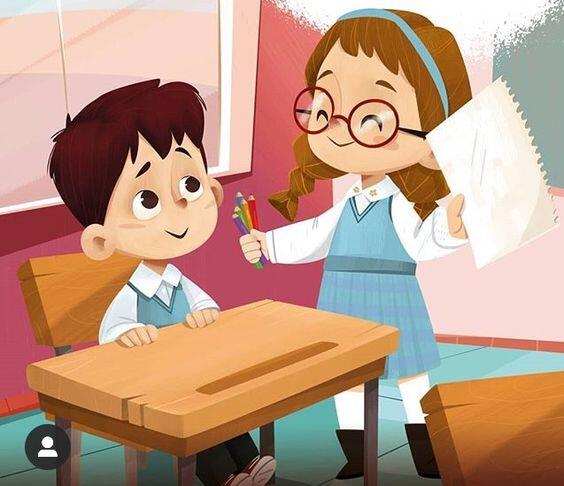In the early years of primary education, parents need to guide their children to establish three important habits. Solid study habits will lay the foundation for their academic journey, extending into lower and upper secondary education.

Fostering a Love for Learning
Rousseau said: “The issue is not to teach children different ways to learn, but to nurture a passion for learning. Once the passion is fully developed, teach them the methods of learning.”
This quote emphasizes the importance of igniting curiosity in learning, especially in children. When children are intrigued, they will be motivated to explore and think positively. This learning approach will yield twice the results with half the effort as children genuinely enjoy what they are learning, taking initiative in their discovery and growth.

Fostering a love for learning.
As children embark on their primary education journey, it is the golden time to cultivate their interest in learning. Parents should guide their children to discover the fascinating and captivating aspects of each subject, from intriguing stories in textbooks to lively science experiments. Incorporating diverse learning approaches, such as games and group activities, will help children view learning not just as a chore but as an adventure.
Instead of forcing dry knowledge, encourage children to ask questions and explore. When children realize that learning can be enjoyable and creative, their intrinsic motivation will be enhanced, developing better self-learning and problem-solving skills.

Developing Study Habits
A philosopher once said, “Habit is a powerful and stubborn force that can govern one’s life. Therefore, people should form good habits through education from an early age.”
This quote underscores the importance of habit formation during the early years, especially as children enter primary school.
The first three years of primary education are the most crucial. During this period, children’s brains are developing rapidly and are highly sensitive to environmental influences.

Developing study habits.
Whether in life or academics, parents should help their children establish good habits as early as possible. Habits such as self-discipline in studying, personal hygiene, and participation in physical activities will create a strong foundation for the upcoming school years.
Parents can encourage children to take on household chores, such as tidying their rooms, preparing simple meals, or caring for pets. Through these tasks, children will learn responsibility and independence. Moreover, they will gain a deeper understanding of the value of work and contribution.

Balancing Academics and Physical Activity
In the first three years of primary school, don’t dedicate all your time to academics. Instead, nurture a love for reading and sports.
Read Extensively
Reading enhances children’s knowledge, logical and dialectical thinking skills. In the first three years of primary education, fostering a reading habit means exposing children not only to a vast array of Vietnamese literature but also to a multitude of languages. This approach helps them become linguistically proficient and develop a keen interest in diverse topics, ranging from science and history to literature and art.
When children read, they not only absorb knowledge but also learn to think critically. The stories and scenarios they encounter stimulate their imagination and shape their analytical and logical reasoning abilities.
This is significant because dialectical thinking enables children to comprehend and assess matters more profoundly, thereby developing their capacity to make wise decisions in life.

Emphasize physical activity and sports.
Engage in Sports
It is essential to cultivate good physical activity habits before children reach the fifth grade. As they enter their teenage years, physical activity may become more challenging due to increased academic pressure and busier schedules.
Therefore, if possible, introduce children to various sports such as swimming, badminton, basketball, soccer, and others. These activities promote physical development, teamwork, discipline, and perseverance.
Participation in sports also helps children relieve stress, improve their mood, and enhance their mental well-being. In today’s world, where children often face academic and social pressures, having a sporting hobby provides a healthy outlet for relaxation and self-expression.
The physical activity habits children develop early on will contribute to a healthy lifestyle throughout their lives. If these habits are established and intrinsic motivation is harnessed, children will effectively manage their time and health without worrying about maintaining physical activity during more demanding academic phases.







































